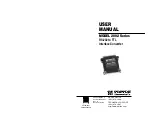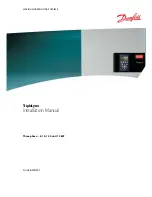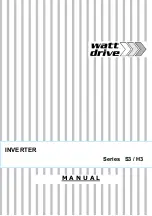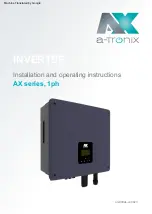
15
ENGL
ISH
DacMagic 100
azur
The driver is available from
www.cambridge-audio.com/
DacMagic100Support
.
Use with Macs
No extra drivers are required. With the DacMagic 100
switched to USB Audio 1.0 the DacMagic 100 will work
with the native Mac OS-X 10.5 (Leopard) or above Audio
1.0 driver and accept audio up to 24/96kHz.
With the DacMagic 100 switched to USB Audio 2.0 the
DacMagic 100 works with the native Mac OS-X 10.5
(Leopard) or above Audio 2.0 driver and can accept audio
up to 24/192kHz.
Use with Linux
For most builds of Linux with the DacMagic 100 switched to
USB Audio 1.0 the DacMagic 100 will work with the native
Audio 1.0 driver and accept audio up to 24-bit/96kHz.
Some very new builds of Linux are now supporting USB
Audio 2.0 for which the Dacmagic 100 should be switched
to Audio 2.0 support to accept audio up to 24-bit/192kHz.
For both cases, because Linux builds vary according to their
creators choice of software components (including drivers)
it is not possible to guarantee operation and Audio drivers
may need to be loaded.
‘Class drivers’ as they are called for generic support of
Audio Class 1.0 or Audio Class 2.0 devices may be available
from the Linux community, we do not supply these.
Bit perfect transfer – ASIO and WASAPI Exclusive
mode
The DacMagic 100 USB interface hardware and software
support bit perfect transfer.
Whether or not the audio sent to the DacMagic 100 is
bitperfect (i.e. not resampled or mixed etc. by the PC) is
actually a function of the playback application and the
operating systems audio engine.
By default the standard windows audio drivers (often called
WDM drivers) included in Windows XP support MME or
DirectSound transfer, both of which include a kernel mixer
and re-sampler stage.
One way round this is to use ASIO to bypass this. Another
is to use a playback application that supports its own form
of kernel streaming, i.e. if has its own way of outputting the
audio without invoking the kernel mixer.
For Windows Vista and Windows 7 a new method of audio
transfer is supported called WASAPI. This has two modes;
Shared and Exclusive. Shared mode is similar to MME or
DirectSound but in Exclusive mode the kernel mixer/re-
sampler is bypassed and bit perfect transfer is possible
with only one audio playback program directed to the
soundcard at a time (for instance system sounds are not
mixed in).










































